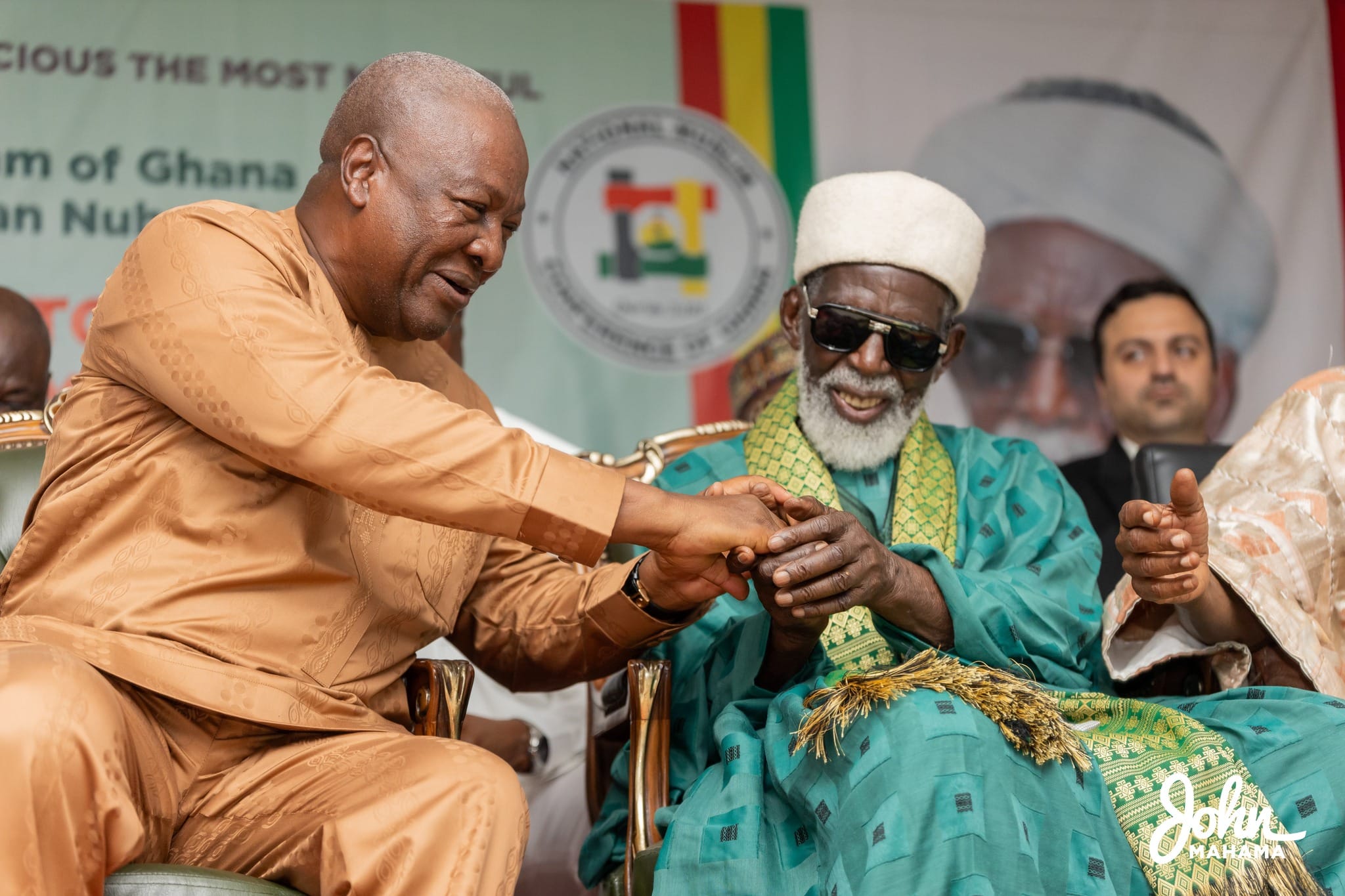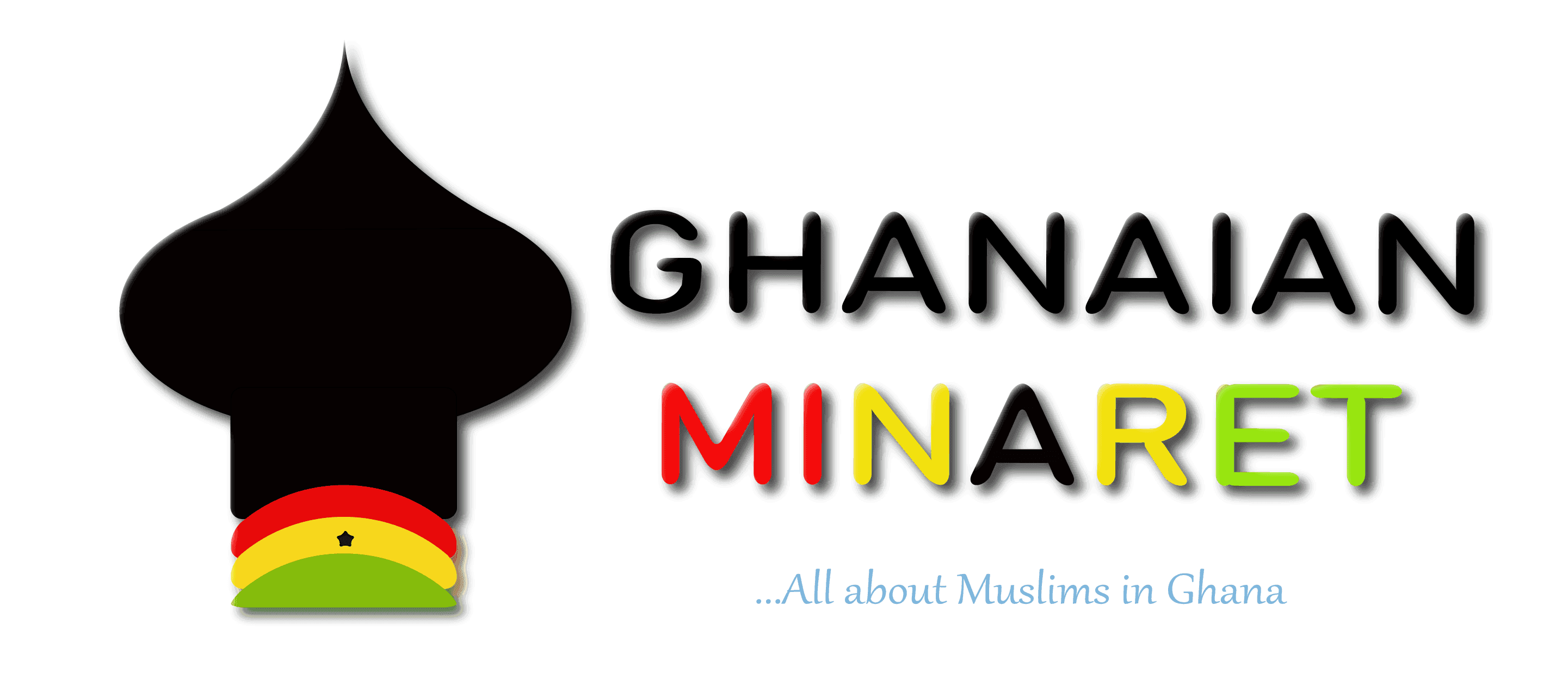10 election promises of John Mahama to Ghanaian Muslim voters

In the run-up to the 2024 general election, politicians are bound to make promises to different groups and constituents of electorates to convince them, gain their trust, and ultimately secure their votes.
Ghana has a Muslim population of over 6 million persons, where more than 66 per cent of Muslims ; thus, about 4 million contribute to the 18.7 million voter population.
Securing the votes of Muslim constituents despite being a minority religious group is therefore crucial for any candidate who seeks to occupy the highest office of the land on January 7, 2025.
In this article, we examine John Mahama’s key campaign pledges to the Muslim community as the presidential candidate of the Opposition National Democratic Congress (NDC).
We also try to understand the impact and the possibility of such campaign promises endearing and swaying the Muslim community toward a former president seeking a comeback.
In this Article
1. Granting additional Eid holiday
The promise of introducing an additional holiday for Muslims was first made public in December 2023, when the NDC presidential candidate addressed Muslims at the 63rd Annual Conference of the Ghana Muslim Mission in Kumasi, Ashanti region.
This promise has since been captured in the party’s manifesto.
Traditionally, Muslims in Ghana have two statutory holidays: Eid-ul-Fitr, which is to be marked at the end of the Ramadan fast, and Eid-ul-Adhar, also known as the festival of sacrifice.
The decision to grant a two-day holiday for Eid-ul Fitr seeks to address a long-standing challenge that has affected how Muslims celebrate the occasion, which is determined by the sighting of the crescent to end the Ramadan fast.
The uncertainty with the sighting has often led the government, in collaboration with Muslim leaders, to set the holiday at a later date, which in many cases deprives other Muslims of the legitimacy to take a holiday and mark the celebration a day earlier.
2. Review laws on Muslim marriages
John Mahama has pledged, as captured in the NDC manifesto, to review the Muslim Marriage Ordinance of 1951, Cap. 129, and streamline the legal framework for the recognition and certification of Muslim marriages in Ghana.
Though Islamic marriage is recognised legally in Ghana, many Muslims for years have been unable to register their marriages due to provisions in the colonial law that make it almost impossible to have the marriages registered.
Most Ghanaian Muslims are compelled to register under customary laws of marriages or refrain from registering their marriages at all, leading to challenges in the case of divorce or sharing of inheritance.
3. Join the Islamic Development Bank
John Mahama, on several platforms, has pledged to get the country to be a member of the Islamic Development Bank to explore other sources of financing for development.
It is significant for Ghanaian Muslims as it opens the window for the country to welcome the concept of non-interest banking, also known as Islamic banking.
For years, a sizable number of the Muslim population has shied away from the mainstream banking sector due to interest-based product offerings, which are scholarly regarded as usury, a forbidden form of earning for Muslims.
This has accounted for the relatively low participation and financial exclusion among the Muslim population.
4. Making Hajj affordable
The presidential candidate of the NDC has promised to review the management of hajj activities and introduce reforms that would ensure that hajj becomes more affordable to ordinary Ghanaian Muslims.
This would, among other things, help curb the risk associated with Ghanaians seeking cheaper alternatives to perform hajj.
The reforms include reviewing the regulation that governs the Hajj board and supporting pilgrims within the middle belt to fly directly from Kumasi to Saudi Arabia.
He first made this pledge during the Eid prayers with the Ahlussuna Wal-Jamah Muslim group at the forecourt of the State House in Accra on Sunday, June 16.
During his address to Muslim leaders at the 2024 annual National Muslim Conference of Ghana, John Mahama also pledged to establish a permanent hajj transit camp in Accra and Tamale.
5. Address discrimination against Muslims
Former President John Mahama has expressed his intention to tackle all forms of discrimination against Muslim groups in a bid to promote justice, fairness, and equality in the country.
As championed in the party’s manifesto, he has pledged to tackle all manner of discrimination, especially against women who are prevented from wearing the hijab in school, at work, and other public places.
Hailing from a family of diverse religious inclinations, he said at the recent NMCG conference that all religious rights and freedoms of citizens must be upheld as enshrined in the country’s constitution.
6. Support Islamic Education
John Mahama, on various campaign platforms and engagements, has outlined a series of interventions to support Islamic and Arabic education in the country.
These interventions include facilitating partnerships to establish Islamic tertiary institutions, facilitating the accreditation of Islamic schools such as the Institute of Islamic Research to support the training of more Arabic teachers, and commencing an infrastructure upgrade of the AL-Faruq College of Education.
He also intends to enhance and resource the Islamic Education Unit under the Ghana Education Service to enable effective monitoring and recruitment of more Arabic teachers while providing scholarships to Muslim students, particularly in the fields of law, medicine, engineering, and ICT.
7. Mortuaries for Muslims
Handling the dead in terms of respecting their privacy and preserving their dignity is a big issue for Muslims in Ghana and around the world.
Muslims get agitated and uneasy when the corpses of their beloved who pass away at health facilities are detained or moved to the mortuary with the possibility of carrying out an autopsy.
It was in that regard that the presidential candidate of the NDC promised to establish Islamic mortuaries at some major hospitals to cater for dead Muslims.
He reaffirmed this pledge, which is captured in the party’s manifesto, at the NMCG conference held this year.
The facilities are meant to ensure the proper handling, early retrieval, and burial of corpses, per Islamic customs.
8. Construction and Rehabilitation of Abattoirs
Arguably, Muslims are the most dominant workforce in the livestock industry of the country. They play major roles in the rearing, transporting, trading, and more importantly, slaughtering of animals for human consumption.
To ensure that the slaughtering is done in sanitary conditions that conform with World Health Organisation (WHO) standards, John Mahama has pledged his commitment as incoming president to partner with the private sector to build new abattoirs in livestock market communities such as Turaku in Ashiaman of the greater Accra region.
He also intends to renovate existing abattoirs across the country with the hope the meat products reaching the public goes through safe and wholesome processes before consumption.
9. Introduce halal certification standards for meat handling
During the recently held fourth annual conference of the NMCG, the presidential candidate of the NDC expressed his desire to work with stakeholders to introduce halal certification standards for meat handling in the country.
The NMCG already has a plan to establish an international framework on Halal standards, certification, and logo issuance for products in the Muslim consumer markets.
It was in that regard that the Muslim organisation held a meeting in July this year with officials of the Food and Drugs Authority (FDA) to collaborate on halal certification standards in the country.
The organisation further engaged with the Ghana Standards Authority.
10. Board membership slot for clergy and chiefs
In his address at the closing ceremony of the NMCG, the former president also hinted at supporting the active inclusion of the clergy, including imams and traditional rulers, on boards of corporations and district assemblies.
This was to provide a direct opportunity and deepen the participation of the stakeholders in governance and decision-making processes.
To conclude, with less than three weeks until the December 7 elections, there is a huge possibility that the minds of Ghanaian Muslims have already been made up on who to elect as president.
What remains to be seen is whether the promises would be carried out and, if it happens, how well policies will be implemented to meet the aspirations of the Ghanaian Muslim community.
Join our whatsapp channel for all the latest updates.
For news coverage, article publication, and advertisement, send an email to ghanaianminaret@gmail.com or reach us via whatsapp, telegram or phone call on +233266666773.

